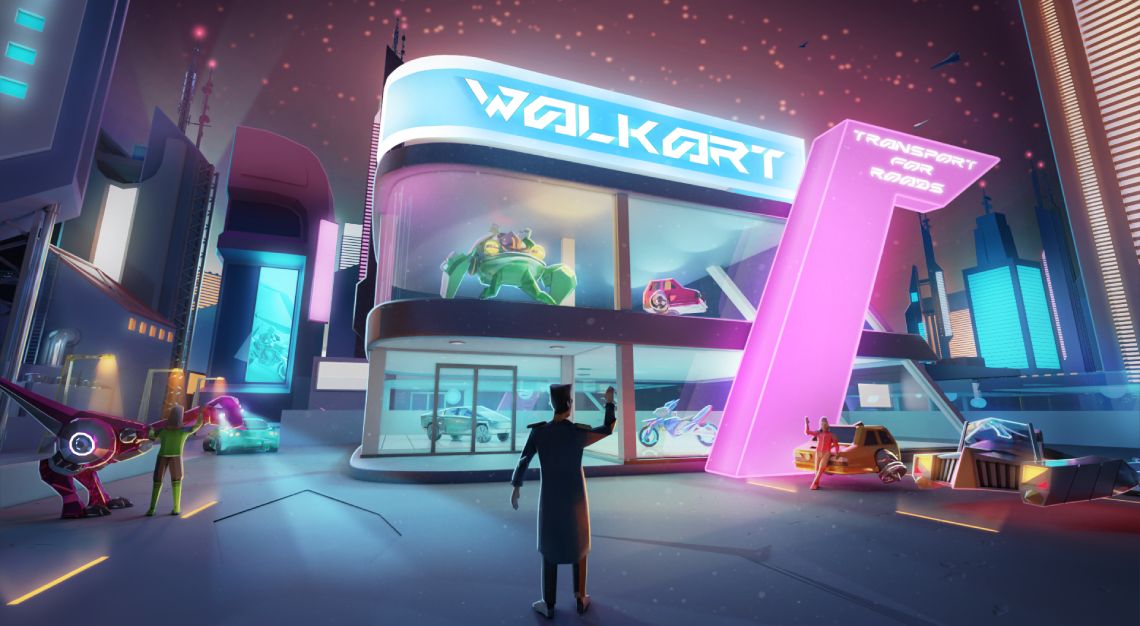William Leonard, group general manager of The Loco Group, shares with us the steps to honest, sustainable business practice

As told to Robb Report Singapore:
“As modern consumers continue to lean into environmentally conscious brands, most companies are by now aware that consumers are demanding more for businesses to do their part on climate action and sustainable business practice. For many businesses – particularly small ones without the means to dedicate substantial resources – figuring out where and how to start can be daunting, and are often encumbered by the perceived gap between knowledge and action, or even a latent feeling of imposter syndrome. If you’re unsure of where to begin and have limited resources, here are four steps taken by The Loco Group to start integrating sustainability as honestly as possible.
Establishing a culture of sustainability
Identifying sustainability as a priority needs to come from the top through consistency of language and action stemming from owners and senior management, which has an immediate impact in setting the right tone throughout the organisation. Consistent messaging to all departments need to ensure that sustainability permeates conversations revolving around all day-to-day decisions that are being made. By stepping into the role of ‘reminder-in-chief’ and continually evaluating decision-making through a sustainability lens as well as the bottom line, employees will follow suit in truly believing in a culture of sustainability.

Create a volunteer sustainability task force
Many business owners might be surprised to learn that sustainability is also important to their employees – many of whom will jump at the opportunity to transform their business for the better. At the start of their journey, The Loco Group put the word out to anyone willing to spend a small amount of their time outside of work commitments to participate in the conversation. Not only was the response overwhelmingly positive, but incidentally helped in prioritising the company’s attention on certain sustainability aspects, while providing an invaluable resource of ideas and perspectives. With a shared motivation for sustainable practices, the task force of volunteers become internal advocates around the organisation, helping to ease the change transformation process and working out its starting point.
Taking a progressive approach in goal-setting
It is helpful for businesses starting on their sustainability journey to remember that doing ‘sustainability’ is not an event with a finish-line in the near future, but one that is an iterative process of improvement over time, especially as new products and innovative technology emerge, potentially providing problems with a solution that couldn’t be solved previously. Most businesses, especially ones trying to do so retroactively, will really struggle to reach the almost ‘nirvana-like state’ where they can declare they are ‘sustainable’. However, in order to mitigate the risk of internal fatigue from this, stakeholders should aim to set realistic targets with the help of their task force team — instead of setting themselves up for failure by setting aggressive targets or assuming that change happens quickly, easily, or expecting immediate payback in the form of improved bottom-line or brand equity.

Every single business has ‘inputs’ like raw material or electricity, and ‘outputs’ like food waste or emissions from transportation, which can be thought of as two adjustable ‘verticals’. Mapping each input and output and their known or perceived environmental impact, helps to provide an easy mind map of priorities. Often the simplest thing to tackle first are purchasing-related decisions, where one product or raw material is substituted with a more sustainable one that requires little to no actual change in operating procedures.
It’s a long road, no question, but one that pays off in the medium term with results like improved employee engagement and positive customer sentiment, which in turn help the bottom-line. By adopting an incremental stance, crossing off (and creating noise about it internally) small wins monthly or quarterly creates an internal environment where motivation among your ‘task force’ remains high, simultaneously allowing them to identify any adjustments that need to be made in-between in response to new technological developments made in your industry.
Consumer transparency is key
No jargon, just transparency. Providing honest visibility to the process behind that product not only builds real reassurance with your consumer, but in turn generates greater general awareness of the environmental issues within the industry, incidentally creating a demand which drives innovation of new products or solutions. Ultimately, the economics of demand drive a supply of new innovations, and where innovators see demand for sustainable products or services, they eventually create supply.
In a nutshell: each company is unique and faces individual sustainability challenges. Getting started begins with being receptive and being truly serious about the idea of incorporating sustainability into the company’s day-to-day, and acknowledging when extra help is needed. It is from there that every step taken, no matter how small, paves the way for a much more sustainable future: not just for the company, but for the community as a whole through influencing and motivating others to take their own action in ways they’re able to. That’s how we make a real difference.”
Join Super Loco Robertson Quay in their latest reforestation efforts in Borneo and adopt a tree here






